
Between The Beginning of Sense and the Chaos Of Feeling: A Multispecies Banquet
In this ongoing series, artist Luiza Prado invites guests to partake in meals where traditional Brazilian dishes are prepared with plant-based ingredients that lead a double life: they are known food sources, whilst also being used in herbal preparations meant to induce fertility and lust. Approaching the preparation and sharing of a meal as a form of collective performance, this work means to critically interrogate the rhetoric associating environmental degradation with overpopulation in the context of the current climate emergency; and to dare to imagine the sharing of abundance as a form of radical, decolonizing care and future-making.


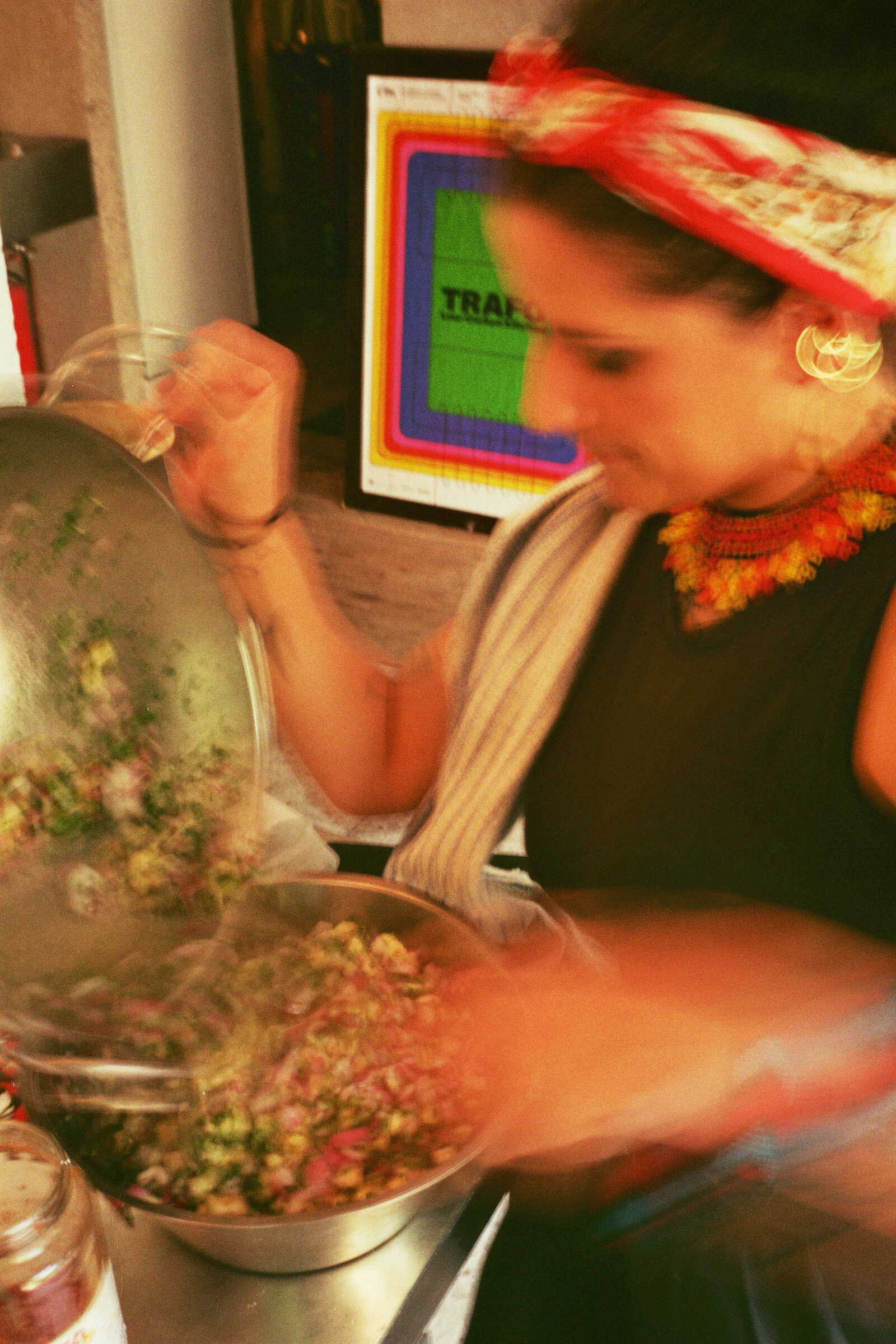
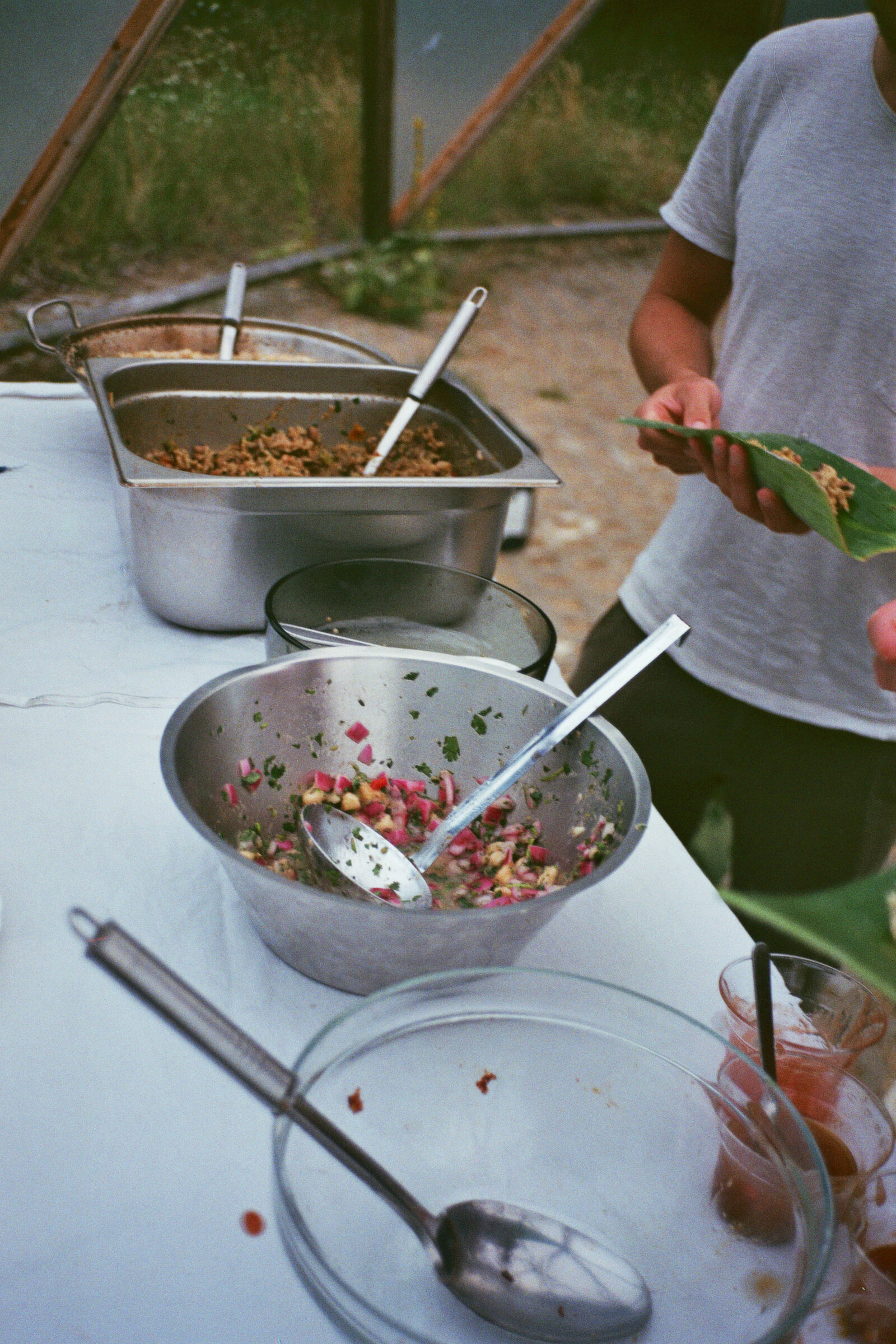
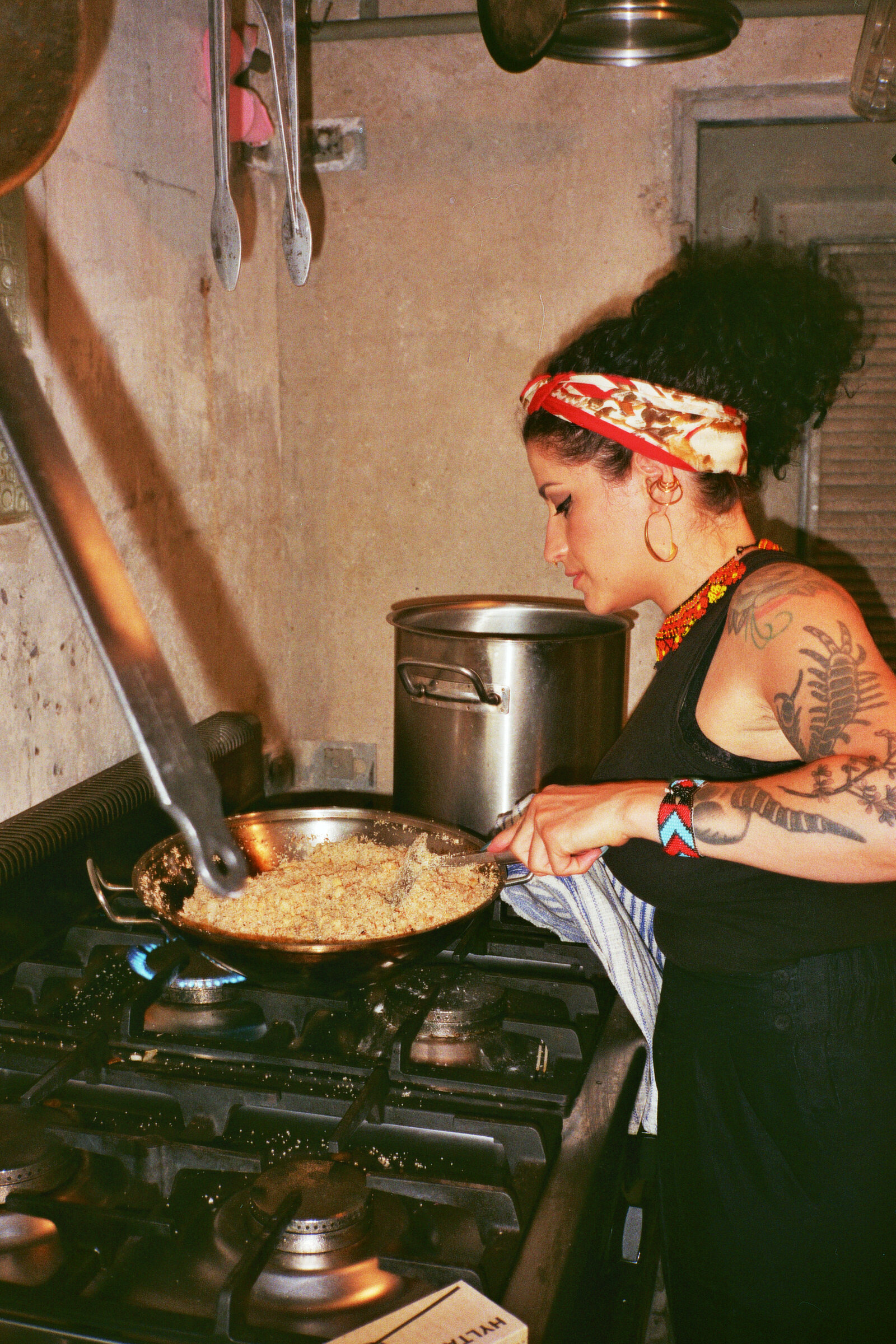
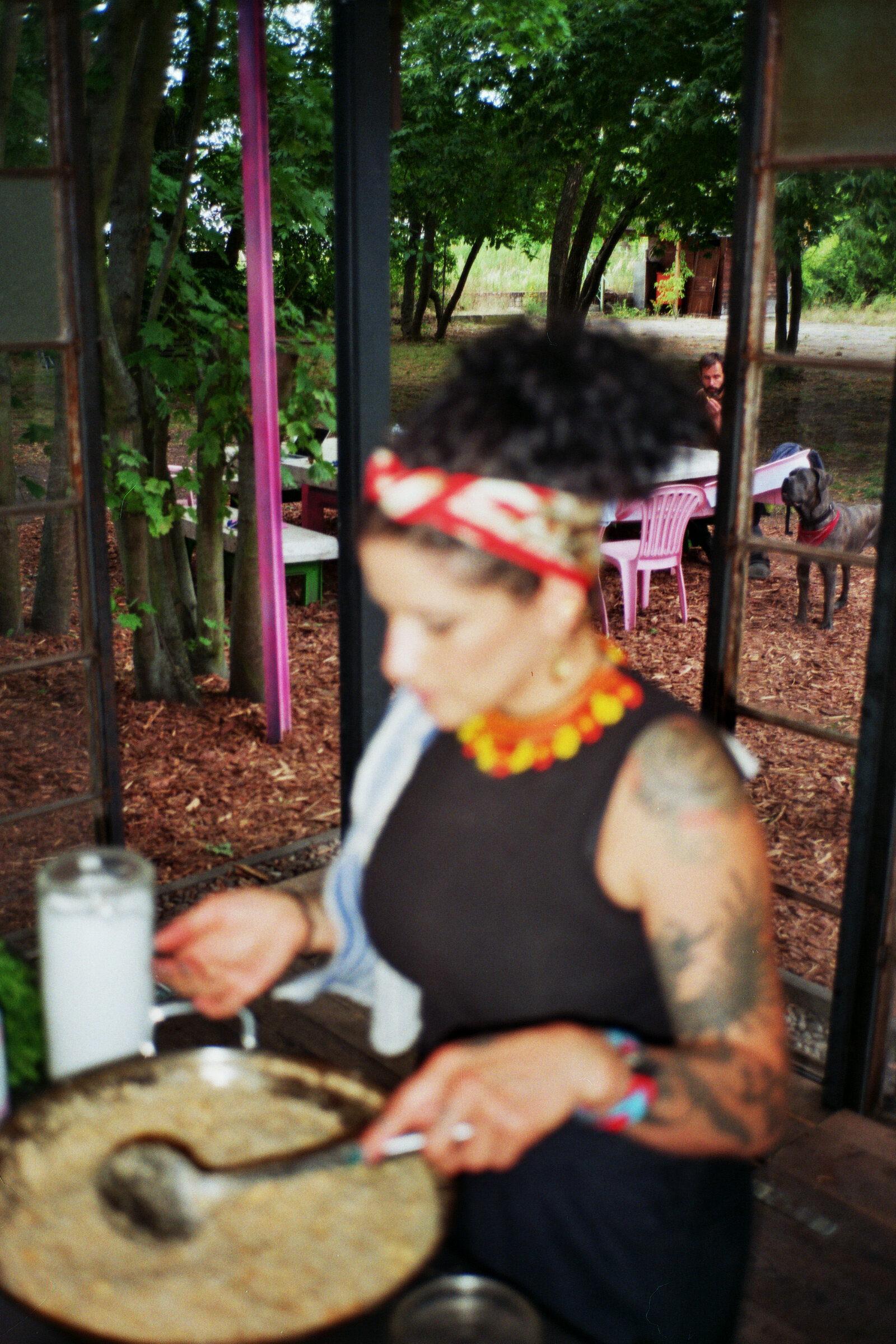
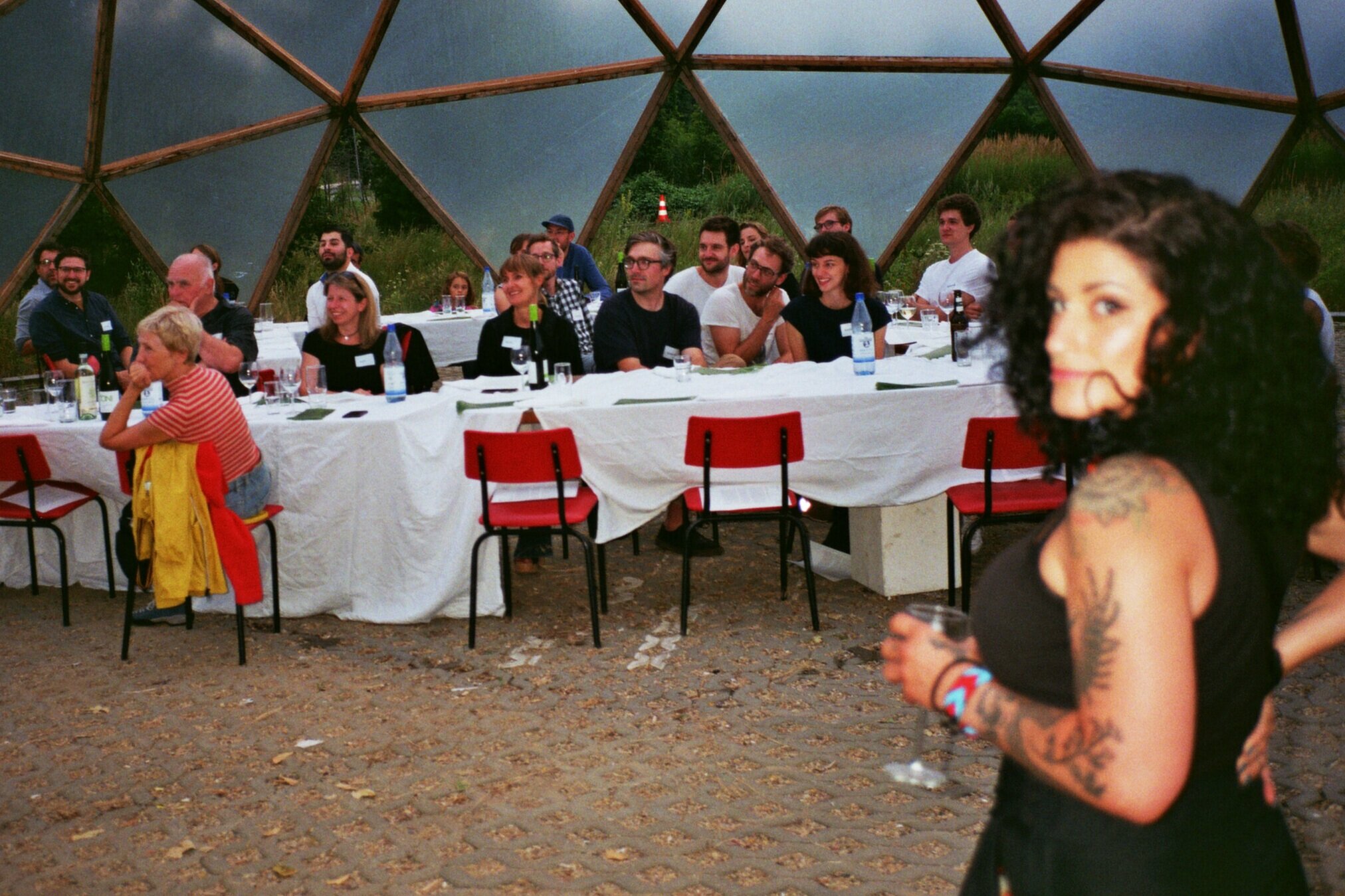
Photo 1: Luiza Prado. All other photos: Obaro Ejimiwe.
Between The Beginning of Sense and The Chaos of Feeling: A Multispecies Banquet (2019-ongoing)
Performance dinner
Please note that this performance is now only offered to BIPOC-led and BIPOC-focused art and community spaces. In case you or your space are interested in hosting a dinner, please make sure that the space fits the minimum requirements for the performance before contacting.
The foundations of coloniality and capitalism have always hinged on the construction of scarcity: in order for wealth to exist, so too must poverty. In order for some to be satisfied, others must be eaten. In order for some to live, some must die. In the context of the current climate emergency, scarcity has become a defining, tangible circumstance in the lives of those on the margins of a world scarred by colonial wounds; those who bear the weight of the West’s quest for endless economic growth. In parallel to this production of scarcity, colonial-capitalist structures also produce a perception of excess, directed precisely at those whose bodies and lives are framed as exploitable resources in the quest for the accumulation of wealth. Those for whom food, water, land, shelter, care, affection, and dignity will not be afforded; those whose fertilities must, ostensibly, be strictly managed, for the benefit of the entire world’s population. Thus, the uncomfortable reality of the West’s perpetual hunger for disposable goods, exploitable bodies, and natural resources — all key factors in the ongoing crisis — remains un- or under-examined.
In this ongoing series, artist Luiza Prado invites guests — particularly those belonging to marginalized communities — to partake in meals where traditional Brazilian dishes are prepared with plant-based ingredients that lead a double life: they are known food sources, whilst also being used in herbal preparations meant to induce fertility and lust. Approaching the preparation and sharing of a meal as a form of collective performance, this work means to critically interrogate the rhetoric associating environmental degradation with overpopulation in the context of the current climate emergency; and to dare to imagine the sharing of abundance as a form of radical, decolonizing care and future-making.
The dishes will be served on a surface made with tapioca- and corn-based bioplastics, which will bear the imprint of the meal. Bioplastic offers a fertile medium for the growth of a number of lifeforms — such as fungi, wild yeasts, small insects and bacteria — who feed off the starches and sugars present in its composition, as well as off the traces left over by the meal. These lifeforms are particular to each location, offering a small glimpse of the local ecosystem. Furthermore, the traces of those who participate in the meal — drops of saliva, bacteria carried through touch of fingers — also introduce an additional set of lifeforms into the bioplastic; a small sample of the abundance contained within each particular body. Ultimately, the meal takes place in distinct timescales: a shorter one, where human diners share a meal and, in so doing, invite other species to partake; and a longer one, where these other species can also indulge in abundance. The surface where the meal was served will remain in display as it dries; the process can take up to 8 weeks, depending on the thickness of the bioplastic. By the end of the process, the material will have encapsulated the traces of both human and non-human meal companions.